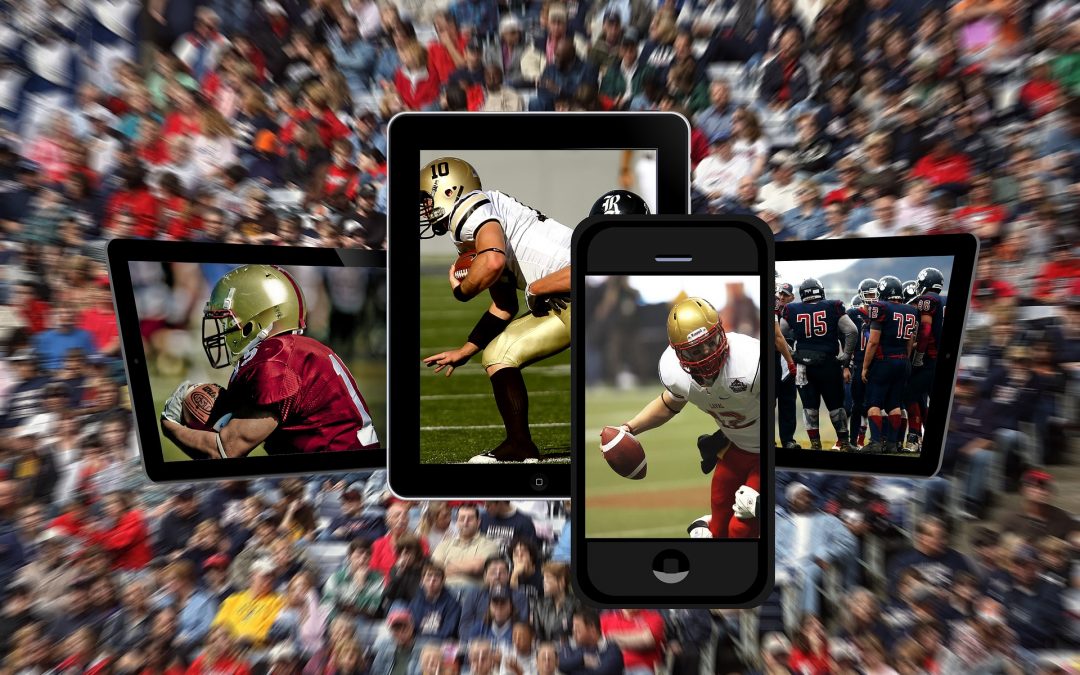“There’s no better time to strike than when you’re winning.” That’s according to Cedric Brown, Interactive Marketing Content Manager for the Miami Heat. On a recent panel called “The Evolution of Sports Fan Experience, Powered By Technology, hosted by Social Media Week Miami, Brown and other Miami tech marketing specialists came together to talk about how Miami teams are modernizing the fan experience–and why a winning team can make all the difference.
Sports teams across the country are undergoing a shift from paper to mobile for tickets. In 2016, this is mostly a welcome change: as Brown points out, “people just don’t use paper anymore.” Four or five years ago, the Miami Heat introduced mobile ticketing at a time it might have not been so popular, if it weren’t for one fact: The Heat were NBA champions from 2011 through 2014. “We noticed that fans hate change,” Brown said. “It’s a lot easier to push a mobile app….when they come to see a great product on the floor.”
Ticketing is just one of many changes disrupting the sports fan experience, but it’s an important one. More people are getting tickets on their phones now than ever, with mobile ticketing expected to account for one in two tickets by 2019. The New York Yankees recently switched over to mobile ticketing entirely, and many teams have apps that makes purchasing easier.
Why make this shift to mobile? There are great benefits on both ends: for fans, there is an element of convenience, fun, and cool rewards; for teams and brands, it is an opportunity to energize fans, bring in additional revenue, and reach sometimes aloof millennial audiences.
Technology can get fans excited, sure, but what excites fans most of all? A winning team. Unfortunately, it’s hard to be excited about poor performance. There’s a cycle: winning teams energize fans, who enable marketers and developers to implement new user-servicing technology, which energizes fans even more, who in turn (hopefully) energize the team to continue winning. Wherever this cycle begins, the idea is simple: fans should have an awesome experience. And losing teams? Fans won’t come out for them, the team won’t profit, less technology will be implemented…. You get the idea.
The relationship between winning, fan experience and technology, of course, begs the question: where does money fit into the equation? The teams with the most wins have the highest payrolls, and are therefore more likely to attract talented CEOs, coaches, and athletes. According to Forbes, “the highly sought-after player is motivated by a combination of the following influences: big money, big money markets where a player can earn bigger-time endorsements, big lifestyles, and the opportunity to play for the biggest time-honored franchises in the history of the sport.”
In a ranking of 2016’s most tech-savvy sports teams, then, it’s no coincidence that the New York Yankees come out on top followed by the Dallas Cowboys.
Where do 2016’s champions stand? The Denver Broncos, who won the most recent Super Bowl, were ranked #14—the second most innovative NFL team. The Broncos having been betting on technology both before and after winning the last two Super Bowls. They have used augmented reality to partner with brands, implementing a “Twitter vending machine” to reward fans, and most recently to host a STEM hackathon.
The Cleveland Cavaliers, who won the NBA champion and are ranked at #10, have adopted 3D mapping technology, virtual reality behind-the-scenes campaigns, and will provide play-by-play “augmented audio” to fans soon.
Then you have the Chicago Cubs, who won the World Series for the first time in over a century. Some have suggested it was their use of big data in analyze pitching performance that helped them finally seal the deal. We’ll have to see if the momentum from the win motivates them to lean into tech trends even more.
All things considered, the Miami Heat remains a great example of how winning empowers teams to take technology to the next level. Their multi-year success brought their fans from a local level to a global level, and ever since the team has been leveraging technology to reach fans across the world. They have redesigned their mobile app and are moving swiftly toward all-digital ticketing. Other winning teams should follow suit.
It’s true that a majority of fans are destined for disappointment regardless of how innovative the fan experience is made to be. But making the journey engaging is worth the while. As long as teams can keep fans on board through the highs and lows that inevitably come, they should be able to make gains in technology too. Just like Brown said—strike when you’re winning, and hope that when you strike out, the fans will stay.
